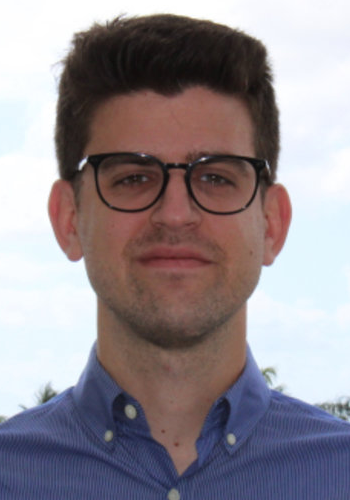Marine and Environment
The Internet of Floating Things
Led by Georgios Sklivanitis, Ph.D.

PROJECT
This project focuses on the design, development, and evaluation of low-size, weight, power, and cost hardware and open-source software frameworks for high-rate and secure marine data acquisition to move ocean observing into a new era of persistent and pervasive measurements. One major challenge to understanding the ocean at scale is, quite simply, cost. New oceanographic measurement capabilities have enabled new ways to observe, monitor, and predict ocean processes, but these instruments generally rely on expensive, bespoke, one-of-a-kind designs. The next frontier of ocean networking will see the deployment of large-scale buoy and drifter-based mesh networks with an equal emphasis on both secure high-speed data transfer and energy efficiency. The objective of the project is to deploy small form-factor, AI-assisted, programmable modems that build self-optimized networked swarms of underwater and sea-surface sensors. The scientific contributions of the project stems from significantly advancing: (1) acoustic/ultrasonic/visible-light wireless communications underwater and over the water surface (using radio and mmWave frequencies); (2) energy harvesting for battery-less Internet of Floating Things; (3) simulation and experimental evaluation of wireless networked robots. The impacts of the project derive from the anticipated advancements in open-source, software-defined network architectures for buoys, drifters, and unmanned underwater vehicles.
The project will involve two REU participants each summer, with a primary focus on developing and evaluating wireless networking algorithms and protocols through simulation studies and real-world experiments. The participants will work together as a team to design and develop electronic subsystems and supporting software for the Internet of Floating Things platforms. This will require an iterative design process under the supervision of Dr. Sklivanitis. The intent is for one participant to focus on hardware developments for energy-efficient Internet of Floating Things and the other to focus on software framework for simulation and emulation of algorithms for secure and high-rate networking, with both students participating in experimental evaluation. The participants will gain experiences and skills in a variety of areas, including signal processing, AI/ML, wireless, robotics, and software-defined radios.